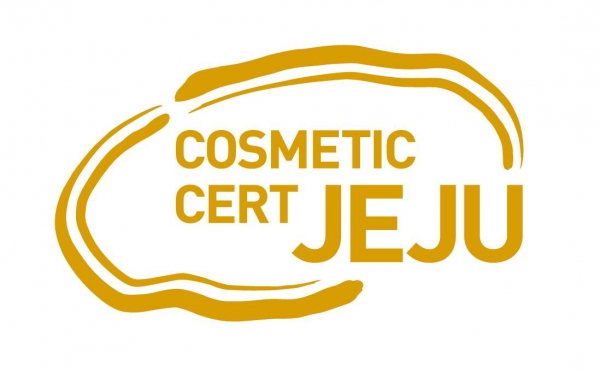
ⓒ Jeju Techno Park
Competitiveness of Jeju Cosmetic Ingredient Industry
Heritage in Jeju Island is a unique cultural and biological resource diversity. UNESCO also designated Jeju Island as the World Biosphere Reserve (2002), World Natural Heritage (2007), World Geopark (2010) and the Seven Natural Views (2011).
According to a 2014 survey conducted by the Agriculture, Fisheries and Food Education and Culture Information Service, Jeju Island has the largest number of domestic biological resources as a key point in the development of natural materials in the cosmetics industry. There are 9,474 species of life forms in Jeju, including 1146 vertebrates, 699 algae, 2195 tubular plants, 3705, fungi 722, and 1007 microorganisms.
It also confirmed the possibility of raw materialization of cosmetics of biological species in Jeju. Jeju Techno Park found out that bottled grass, aloe, camellia, and Munju-ran are used as cosmetics raw ingredients among Jeju Island's biological resources in 181 land plants, 82 Jeju (Korea) specialized plants and 34 essential oils, and evaluated that Jeju specialized plants can be industrialized through standardization and standardization in the future. Currently, 272 raw materials from Jeju are listed in the International Cosmetic Raw Material Collection ICID. Jeju is known to have the largest number of ingredients with regional names in ICID.
Jeju cosmetics industry is also growing. As of 2019, there are 76 cosmetics manufacturers and 220 responsible sellers. The figure tripled from 63 in 2014. Cosmetic materials (raw materials) companies such as Daebong LS, The Garden of Natural Solution, Durae Jeju Bio Center, Biospectrum, ACCT, Jeju Sarang Agricultural and Fisheries, Jeju Olga, Cosid Biopharm, Cotte, and Hyundai Bio Land (formerly SK Bioland) have also built nests in Jeju. There are 42 companies that handle raw materials using clean resources in Jeju, and food raw materials companies also plan to push for cosmetics ingredients.
R&D infrastructure is also well-equipped. Jeju Techno Park operates a bio-convergence center, a biodiversity research institute, a lava marine industrialization center, and a digital convergence center, which can create synergy with the cosmetics industry. In particular, the Bio Convergence Center operates not only cosmetics factories, but also food processing research centers, beverage production plants, and KOLAS testing institutions. Next to the "Cosmetics Raw Material Industrialization Support Center" will be the "Useful Subtropical Microbial Resources Industrialization Support Center." The center is a regional hub project by the Ministry of Trade, Industry and Energy to secure research and development of microbial resources in Jeju and supporting industrialization.
Jeju National University laid the foundation for global talent development and core development in the cosmetics sector through the establishment of a chemistry and cosmetics department for the first time in March 2014. Jeju National University's Jeju Inside Business Group is preparing to foster the fragrance industry. The Jeju Industrial-Academic Convergence Center (Director Lee Nam-ho) also opened a high-tech campus in August in the Jeju Industrial-Academic Convergence Zone located in Ara-dong, Jeju-city.
It is also actively promoting cosmetics and beauty industries at the Jeju Island level. Jeju Island has been fostering Jeju's health, beauty and biological industries as strategic industries since 2002. On November 30, 2015, the Jeju Cosmetics Industry Promotion Ordinance was enacted to promote the Jeju Cosmetics Industry, and the Jeju Cosmetics Certification System, which was implemented on May 2, 2016, further enhanced the reliability of Jeju materials. The Jeju Cosmetics Certification System is an official certification system that the Governor of Jeju proves products produced at factories in Jeju, including more than 10% of raw materials using Jeju origin(5% of wash-off products). As of November 15th, 43 companies (55 cumulative companies) including LG Household & Health Care) and 177 items (255 cumulative items) were certified. In addition, Jeju Island is planning to push for 'blockchain-based cosmetic material opening platform'. It is a system that improves reliability by applying blockchain technology to raw materials and cosmetics DBs managed by Jeju Techno Park's Biological Diversity Research Center and Bio-Convergence Center. In addition, Jeju Island established a "Jeju Special Self-Governing Province Bio Industry Promotion Plan", "Jeju Self-Governing Province Cosmetic Industry Promotion Master Plan", and "Jeju Fragrance Industry Foundation Plan" last year.
An official from Jeju Techno Park said, "Clean Jeju has not only biological resources but also hardware and software to serve as a hub for Jeju's cosmetics business."

